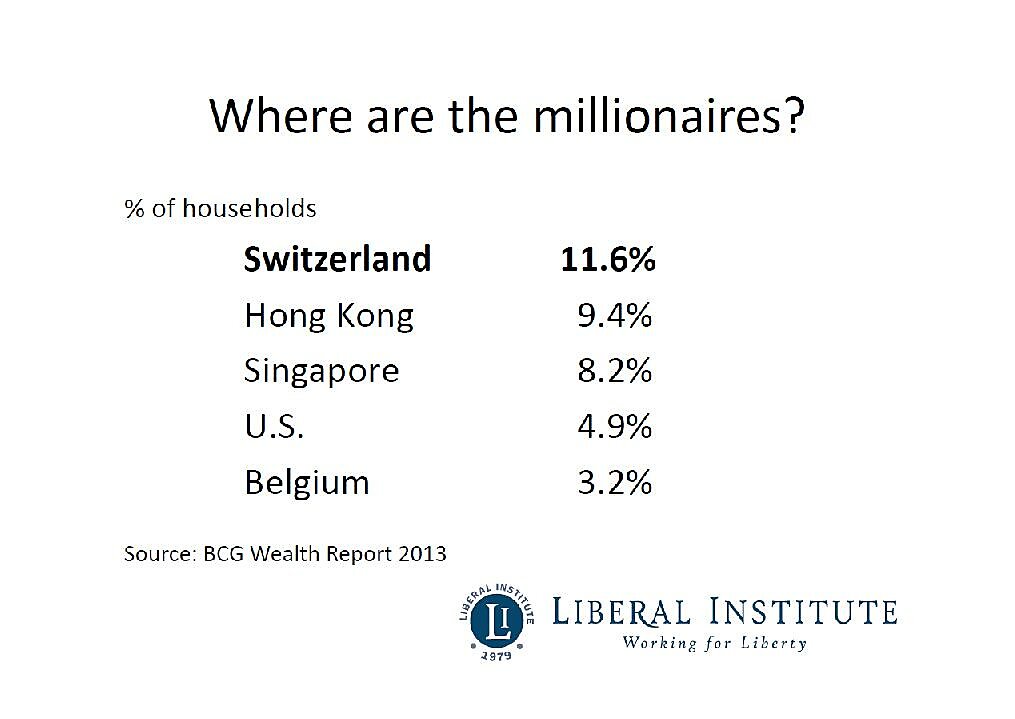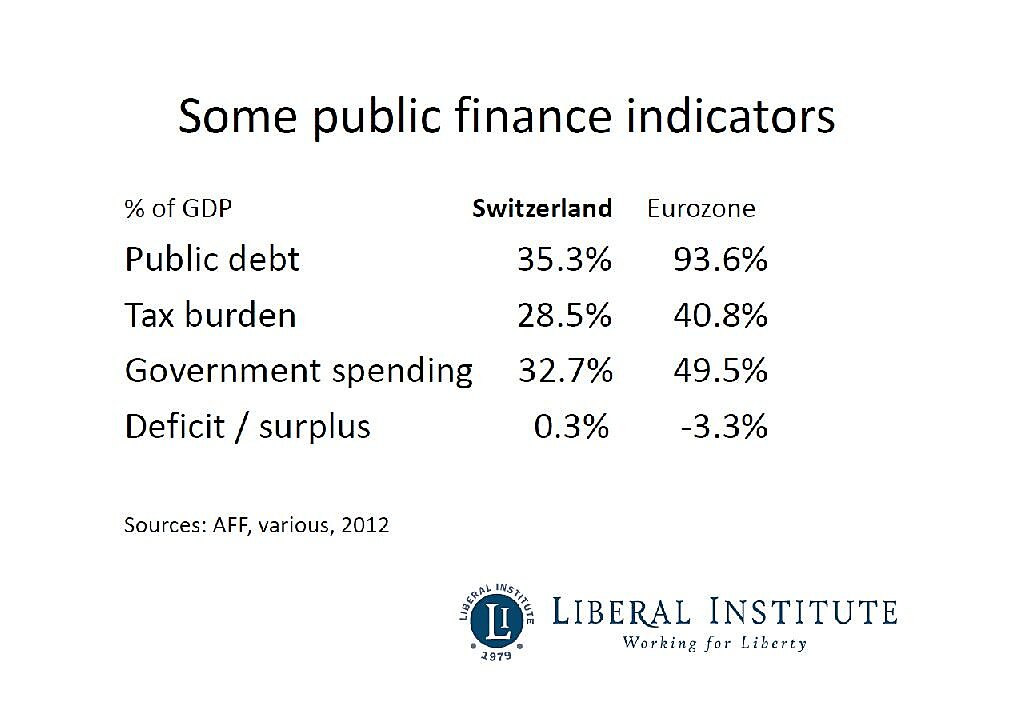At the European Resource Bank conference earlier this month, Pierre Bessard from Switzerland’s Institut Liberal spoke on a panel investigating “The Link between the Weight of the State and Economic prosperity.”
His presentation included two slides that definitely are worth sharing.
The first slide, which is based on research from the Boston Consulting Group, looks at which jurisdictions have the most households with more than $1 million of wealth.
Switzerland is the easy winner, and you probably won’t be surprised to see Hong Kong and Singapore also do very well.
Gee, I wonder if the fact that Switzerland (#4), Hong Kong (#1), and Singapore (#2) score highly on the Economic Freedom of the World index has any connection with their comparative prosperity?
That’s a rhetorical question, of course.
Most sensible people already understand that countries with free markets and small government out-perform nations with big welfare states and lots of intervention.
Speaking of which, let’s look at Pierre’s slide that compares Swiss public finances with the dismal numbers from Eurozone nations.
The most impressive part of this data is the way Switzerland has maintained a much smaller burden of government spending.
One reason for this superior outcome is the Swiss “Debt Brake,” a voter-imposed spending cap that basically prevents politicians from increasing spending faster than inflation plus population.
Now let’s compare Switzerland and France, which is what I did last Saturday at the Free Market Road Show conference in Paris.
As part of my remarks, I asked the audience whether they thought that their government, which consumes 57 percent of GDP, gives them better services than Germany’s government, which consumes 45 percent of GDP.
They said no.
I then asked if they got better government than citizens of Canada, where government consumes 41 percent of GDP.
They said no.
And I concluded by asking them whether they got better government than the people of Switzerland, where government is only 34 percent of economic output (I used OECD data for my comparisons, which is why my numbers are not identical to Pierre’s numbers).
Once again, they said no.
The fundamental question, then, is why French politicians impose such a heavy burden of government spending — with a very high cost to the economy — when citizens don’t get better services?
Or maybe the real question is why French voters elect politicians that pursue such senseless policies?
But to be fair, we should ask why American voters elected Bush and Obama, both of whom have made America more like France?


